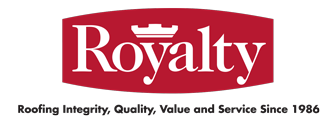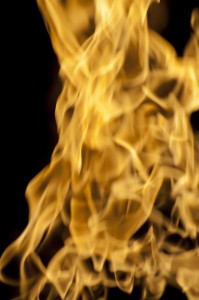One term that you probably see a lot when you’re researching roofing materials is that PVC roofs are “flame resistant.” This is true and it’s obviously important for most commercial building owners, but a far more important factor is a roof’s fire rating. The flame resistance of a roofing material is only one factor when it comes to your fire rating.
Roof Fire Ratings Explained
Most US states have adopted code standards for Roof Assemblies and Rooftop Structures under the International Building Code (IBC). Roof structures are classified as A, B, C or “Nonclassified,” with Class A being the highest. Keep in mind that a roof’s rating has absolutely nothing to do with the quality of the roofing materials. The rating has to do with the likelihood of whether a fire will spread across the roof structure and/or into the building. Certain types of buildings are required by law to have a Class A roof, such as schools, hospitals and movie theaters.
Factors That Determine Fire Ratings
To attain a Class A fire rating, the roofing structure needs to resist the ability of flames to penetrate into what would be the attic space of the building. There are several factors that go into a commercial roof structure’s rating, including slope, substrate, a combustible vs. non-combustible roof deck and the insulation.
Slope: The slope of a roof is important for its fire rating. Most commercial roofs need a slope of 2/12 or less to attain a Class A rating. High slope roofs will require special coatings, so the flatter your commercial roof is, the better its rating can potentially be.
Substrate: The substrate is the material that your roofing material (such as a PVC membrane) is applied to. Certain types of substrate may be more flammable and can affect the rating.
Combustible vs. Non-Combustible Deck: If you need to achieve a Class A rating for a roof, the deck will likely be made from non-combustible materials. It’s difficult to achieve an A rating if the deck is made from wood, for example.
Insulation: If the type of insulation in the structure is more flammable, such as polymeric insulations, it can affect the amount of slope that the roof can have to achieve a Class A rating.
Not all buildings are required to have a Class A fire rating for their roofs. But if it is required, all the above factors are evaluated to give the structure its rating.
Our preference at Royalty Roofing is PVC single-ply roofing systems, but we can install any type of roof that our customers require. PVC roof membranes are inherently flame resistant, but, as discussed above, that’s only one part of the equation. PVC roofs are also extremely durable, long-lasting and have high reflectivity, which can save money on your energy costs. No matter what your commercial roofing requirements are, give us a call today so we can get the process started!


